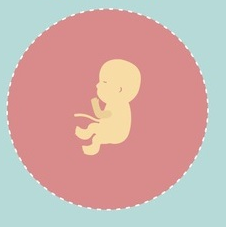Baby’s Developments
The thyroid gland of the foetus has matured so now the foetus would start producing thyroid hormones. Fine hairs, known as lanugo have developed on the baby’s face. These are colourless and would eventually spread to cover most of the baby’s body. But they are shed just before delivery in a normal birth. If lanugo is present on a newborn baby, that means that baby has been born prematurely. Although the genitalia of the foetus have fully developed now, it may still be difficult to determine the sex through an ultrasound scan. The foetus is about 9 cm long and weighs about 45 g. In addition to a range of facial expressions, the foetus can even suck its thumb.
Changes in the Mother
The nausea and frequent need to urinate would have abated as well as breast tenderness, but there is a possibility you may develop some other discomforts:
- Varicose veins: these are caused by the extra volume of blood you have produced. However, since they’re a heridetory condition. Not all women would develop it. Taking frequent walks and being active would reduce varicose veins.
- Nose blocks: increased levels of the hormones Progesterone and Oestrogen increase the blood flow to the mucous membrane and cause more mucus to be produced. Steaming may help alleviate nose blocks.
- Susceptibility to infections: during ovulation and throughout pregnancy, your body lowers its immune system in order to prevent your body rejecting your baby as a foreign object. This may increase your vulnerability to infections. Wash your hands frequently and avoid sharing food, drinks, cups, plates or wiping your hand with common towels. Keep a distance from sick people, even your husband if the need arises.


